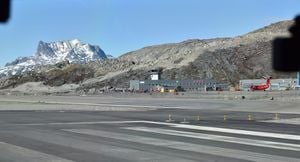Russian President Vladimir Putin has made some alarming statements recently, warning of severe consequences should Ukraine acquire nuclear weapons. Speaking at a press conference following the Collective Security Council meeting of the Collective Security Treaty Organization (CSTO) held in Astana, Kazakhstan, Putin emphasized the stark reality of the situation by asserting, "If the country which we are at war with now becomes a nuclear power, what do we do? We will use all; I want to stress, all means of destruction available to Russia. Everything: we will not allow it. We'll be watching their every move." His comments echoed earlier concerns raised by some unnamed Western officials, who speculated whether U.S. President Joe Biden might provide Ukraine with nuclear capabilities before his term expires.
Putin reiterated the gravity of the scenario, explaining, "If officially someone were to transfer something, then it would denote a breach of all non-proliferation commitments made." He acknowledged, though, the improbability of Ukraine developing its own nuclear weapon. Instead, he mentioned the potential for Ukraine to produce a kind of "dirty bomb," which combines conventional explosives with radioactive materials to spread contamination. He stated, "If they were to make such devices, Russia would respond appropriately," hinting at possible escalation.
Over the past few years, Russia has voiced such security concerns frequently, alleging without evidence, claims of Ukraine considering the use of nuclear-related materials or tactics. This is particularly troubling as Ukraine once held nuclear weapons inherited from the Soviet Union after its collapse but gave them up under the 1994 Budapest Memorandum, trading those arms for security guarantees from Russia, the United States, and the United Kingdom. Ukrainian President Volodymyr Zelenskyy has lamented this decision, frequently asserting it left Ukraine vulnerable, which is part of why he seeks NATO membership—a prospect Moscow vehemently opposes.
Putin has also hinted at using advanced weaponry against Ukraine, particularly his new Oreshnik hypersonic missile. He stated during the conference, "We do not rule out the use of Oreshnik against the military, military-industrial facilities, or decision-making centers, including in Kyiv." This threat follows a reported escalation where Russia utilized the experimental weapon against the Ukrainian city of Dnipro, signaling the seriousness and intensity of the current conflict. Putin asserted the missile's capabilities, claiming it could travel at up to Mach 10 (about 7,672 miles per hour), bringing destructive power akin to falling meteorites—"The kinetic impact is powerful, like a meteorite falling. We know what meteorites have done historically, sometimes enough to form entire lakes," he suggested.
On the ground, tensions continue to escalate. Russia unleashed deep power cuts across Ukraine, launching what appears to be its second significant assault on the energy infrastructure this month. The attacks were reportedly prompted by Ukraine's strikes on Russian territory, which involved U.S. medium-range ATACMS missiles. Following the strikes, Ukrainian President Zelenskyy condemned Russia's actions, labeling them as part of rampant escalation and confirming the use of cruise missiles featuring cluster munitions.
The aftermath of these attacks is dire, as over one million residents faced power outages, with many others experiencing intensified rolling blackouts. Ukraine's Air Force reported Russia's deployment of 91 missiles and 97 drones during the onslaught, with 12 of these hitting their targets, primarily energy and fuel facilities. The Air Force stated, "The enemy is using many missiles and drones, often exceeding our means of air defense coverage."
Radioactive materials, if used, could devastate areas, and it heightens the anxiety surrounding energy access, particularly as temperatures approach the freezing mark during the harsh winter months.
The intensity and frequency of attacks have raised alarms, as officials mentioned it was the 11th major strike on Ukraine's energy systems since March, crippling about half of Ukraine's generating capacity and causing the shutdown of nuclear plants to avoid even greater risks. The state grid operator, Ukrenergo, has announced widespread and deep power cuts, warning citizens to brace for outages lasting up to 12 hours. Despite the challenges, Russian missiles aimed at Kyiv were intercepted, impacting the overall stats of successful Ukrainian defense.
This situation remains fraught with tension as both sides prepare for additional potential strikes and counter-strikes. The prospect of increased military actions only magnifies the potential for catastrophic outcomes if nuclear weapons come to play. With Putin's insistence on safeguarding Russia’s interests, the standoff seems likely to persist as Ukraine and its allies continue to navigate this tumultuous geopolitical crisis.



